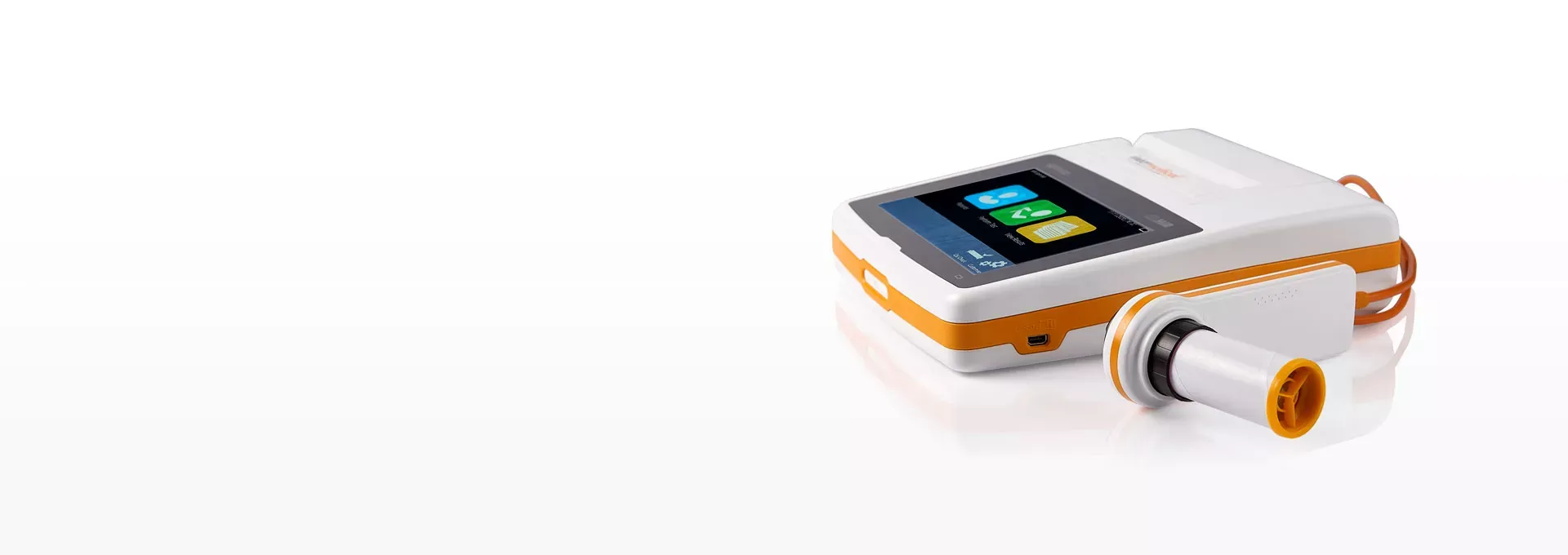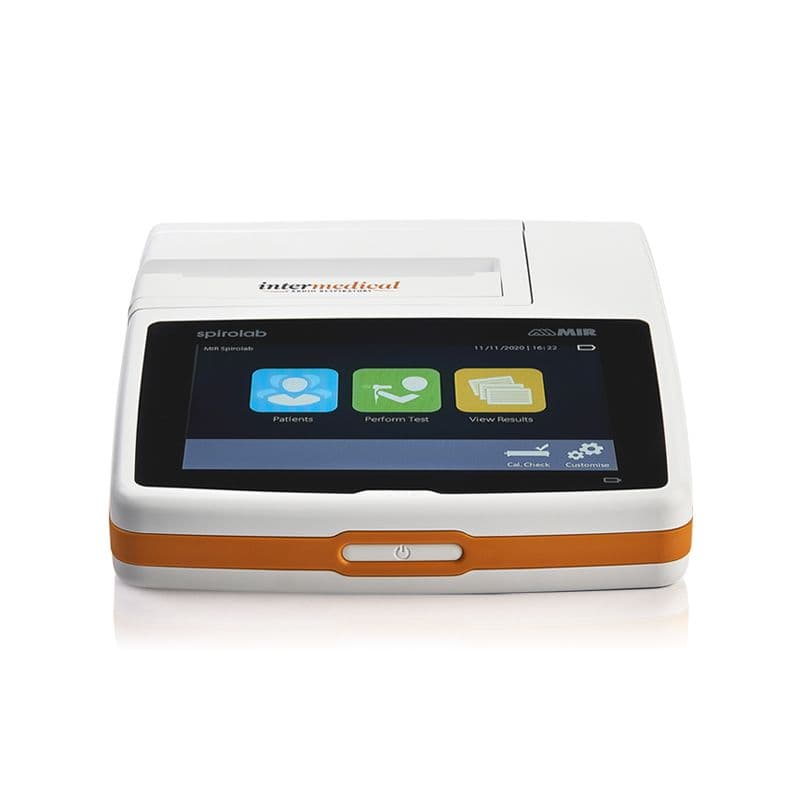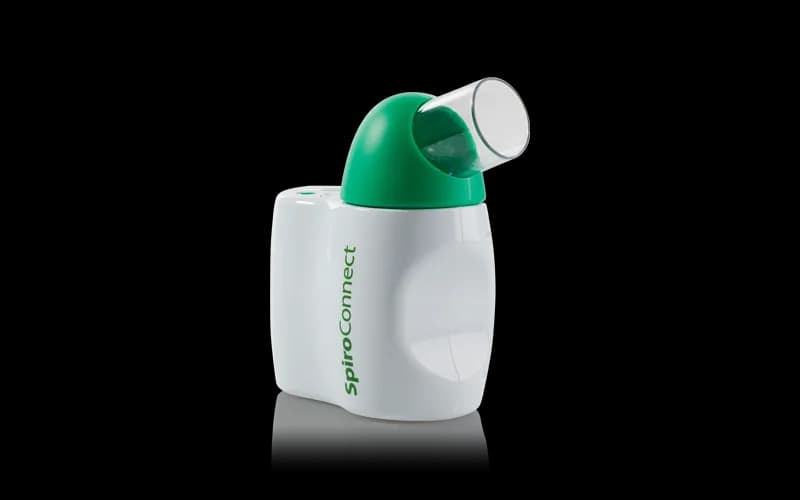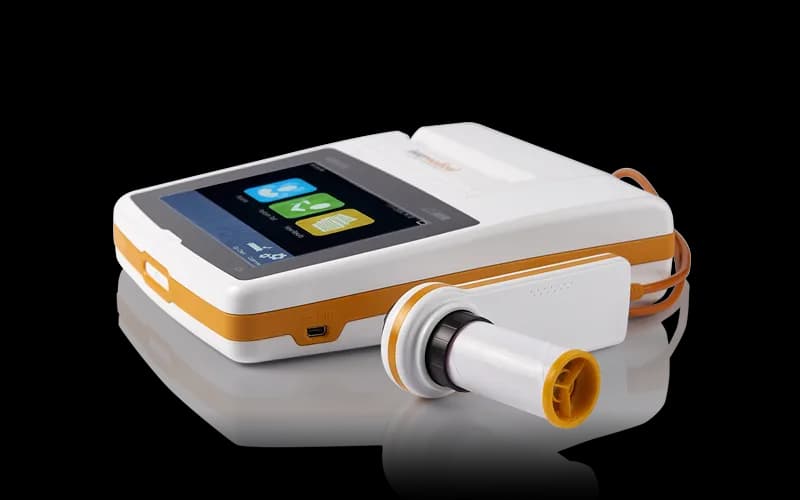Spirometers
PC-based spirometers
Spirometers designed for monitoring lung conditions. For use in lung function test programmes within occupational health and respiratory care.
Our spirometers
We offer a variety of spirometry solutions to meet the requirements of healthcare professionals. With the inclusion of class-leading PC database applications, our spirometers provide occupational health specialists with comprehensive data analysis, trending, and transfer capabilities.
Frequently asked questions
What is a spirometer used for?
Spirometers are used by a qualified medical professional to assist in the diagnosis of illnesses that may affect a patient’s lung function. This may be a nurse or doctor within a private clinic, a hospital, or a trained occupational health specialist within a company.
A spirometer may also be used periodically to assess the condition of a person’s lungs i.e., in the workplace where respiratory sensitisers are present and can influence lung function.
A spirometry test involves a small medical instrument called a spirometer, along with a mouthpiece. A patient will take a deep breath and breathe with force into the mouthpiece which is attached to the spirometer. The results of the spirometry test are then analysed and interpreted accordingly.
What does a spirometer measure?
Relaxed (or slow) Vital Capacity (VC) - The volume of air that can be slowly expelled from the lungs from a point of maximal inspiration to maximum expiration.
Forced Vital Capacity (FVC) - The volume of air that can be forcibly expelled from the lungs from a point of maximal inspiration to maximum expiration.
Forced Expiratory Volume in 1 second (FEV1) - The volume of air that can be forcibly expelled from the lungs from a point of maximum inspiration in the first second of an FVC manoeuvre.
FEV1/FVC ratio or FEV1% - The FEV1/FVC ratio is the FEV1 expressed as a percentage of the FVC (or VC if this is greater).




